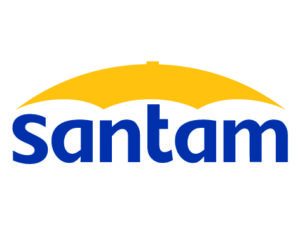
By: Juan Fourie, Head: Santam Hospitality
South Africa’s tourism sector is finally starting to approach pre-pandemic levels. With the surge in bookings and visitors, there are some things that hospitality business owners need to ensure that their property and staff follow best practices to be properly indemnified against potential liability claims. Even if there is no negligence on the part of the establishment, from a common law perspective, the business may still have an approach from a third party and their policy could then also be called upon for defence of this litigation.

Disclaimers, (also known as indemnities, exemptions and exclusionary clauses) help mitigate this risk as they are agreements in which one party (the guest) holds harmless another party (the host) from liability that may result from a future event. However, the Consumer Protection Act (CPA) outlines strict regulations around the use and enforceability of indemnity clauses. These need to be clearly drafted in plain unambiguous language and very obviously displayed.
For an owner in the hospitality industry, it is recommended that guests sign a disclaimer. A disclaimer signage that can be clearly seen upon arrival should be present. Here are some requirements for this signage:
- The sign should be bright with large bold print and be clearly visible and legible during the day and night.
- The disclaimer should be located where one would ordinarily expect to find a notice containing the terms governing the contract between the parties involved.
- The disclaimer should be in a position where it would be unlikely for a reasonable person to overlook it.
- The disclaimer should not be placed near or next to other notices or busy pictures or adverts.

Farming with the sun or the land?
Pick an insurer that understands both.
Farming looks very different today. Shouldn’t your insurance too?
As a market leader with over 105 years of experience and a nationwide infrastructure, you can count on Santam to adapt to whatever comes next
To find out more about our agriculture insurance, speak to your intermediary or visit santam.co.za/products/agriculture.
Santam is an authorised financial services provider (FSP 3416),
a licensed non-life insurer and controlling company for its group companies.
Staff must do all that could be considered necessary to advise or give notice of the disclaimer to other parties with whom the establishment deals. Disclaimers need to be fair, just and reasonable, and should be drafted by an attorney who has special insight into the specific business activities. It’s important to know that the enforceability of disclaimers cannot be backdated. Once a party is proven to have read a disclaimer, he or she is legally bound by its terms.
What about Section 49?
Section 49 of the CPA identifies certain activities and services that are especially risky and potentially dangerous (with the possible result of injuries or death). In these cases, patrons must be informed of the ‘fact nature and potential effect’ of the activity and service. The patron must understand the disclaimer and appreciate it, and then should sign against it to show their agreement.
What about insurance and major-loss events?
A well-constructed insurance policy according to each business’ needs; risk profile; and risk appetite can go a long way to providing protection for a major event.
What other precautions should those in hospitality take?
Having a disclaimer does not relinquish the business owner from the duty of care to the public. Other precautions that can be taken to protect the establishment; property; and the property of guests; is with some well-placed surveillance equipment. These should be pointed out to guests and must comply with privacy regulations.
The whole team, from the front of house to groundskeepers, must be comfortable to handle various situations that occur. Clear procedures on how to handle any issues can noticeably reduce the probability of legal action.
It is critical that liability insurance carries sufficient limits; all material facts have been disclosed to insurers; and the premiums are up to date. Should an incident arise, the business owner must submit a claim and all supporting information as soon as possible. This will ensure insurers have not been prejudiced and they can actively defend the policyholder’s rights.
Indemnity is not enough
Hospitality providers, need to protect guests and businesses from risk. The existence of a disclaimer is insufficient to avoid third party claims. Compliance with the CPA is required as so is ensuring that guests are aware of any disclaimers and understand these. This is as much for their safety as it is for the business owner.
To find out more about our hospitality insurance, speak to your Relationship Manager or visit www.santam.co.za.

